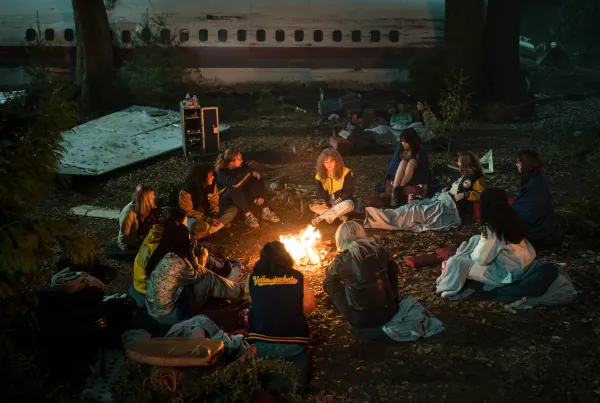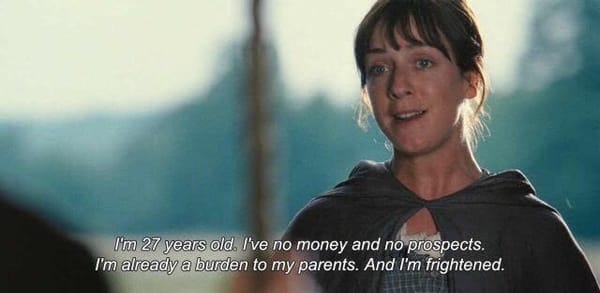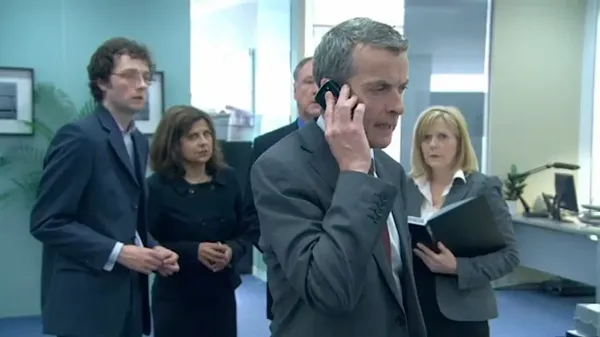Scriptnotes Recap: Episode 684, Landing a Series with Eric Kripke
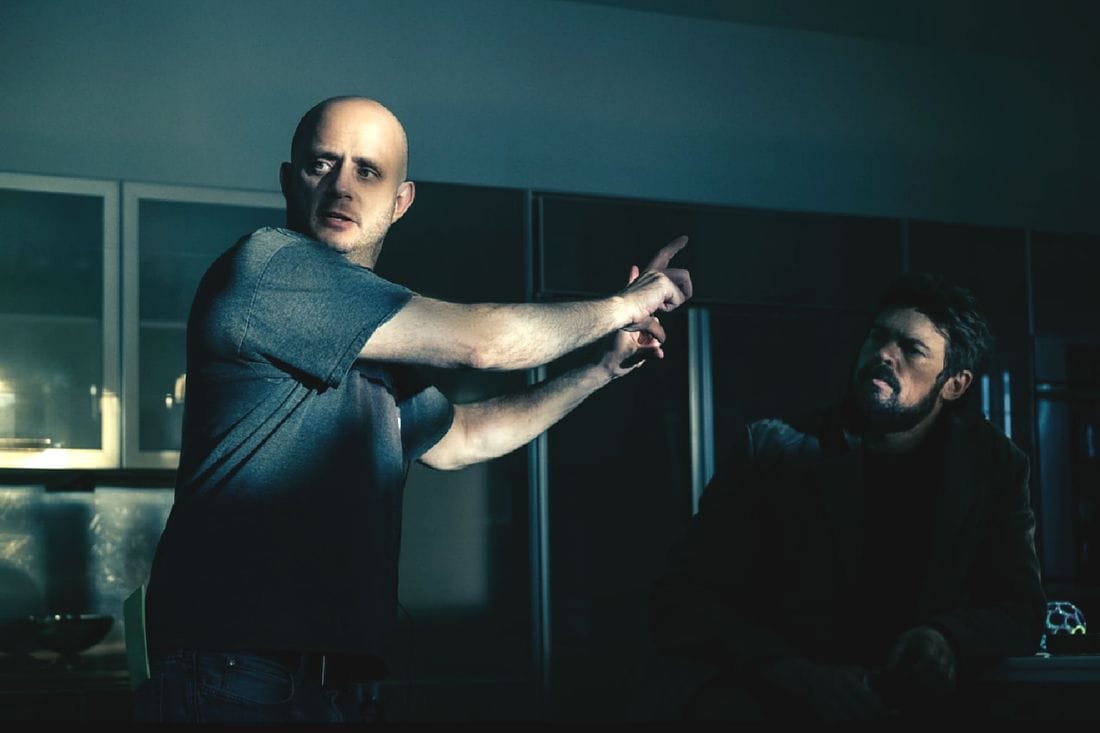
I have a confession to make: I don’t watch the The Boys. I know! I believe everyone who tells me that it’s great! John is continually disappointed in me whenever I tell him that I haven’t seen it yet!
And after having Eric Kripke on the show, I’m acutely aware just how much I’ve been missing.
It was so refreshing to have someone so successful be so willing to talk about how they got where they are, all their failures along the way, and how they changed their approach in order to make their work successful. For instance:
Learn Your Craft
Eric: I went to USC and my goal was to be a director for features, and feature comedies. I made short films, and was unemployed, the usual thing. The main goal at the time was to make a short film, and have the feature-length version of that film as a script ready to go, and that was the best way to get yourself into the director’s chair while you’re in your 20s.
Then, my shorts (Battle of the Sexes and Truly Committed) were accepted at Sundance and Slamdance in the same year, and we won Slamdance. I got an agent, I had a good short film, and people wanted to have meetings.
I had a Battle of the Sexes feature-length screenplay, and I took it out. I had one of those months where I was taking eight meetings a week, and nobody liked the script, because it is a very sloppy script. Every single person who read it was like, “Yeah, no, what other scripts do you have?”
I had nothing. I blew it.
So, I took a couple open writing assignments for comedies, because I thought I was going to be a comedy filmmaker. They were all horrible scripts. They never got produced, and I was banging around for three years, just being one of those guys who never gets anything made.
I read one of those old scripts recently, and you can see someone struggling to learn something, but it’s terrible. I wanted to be a comedy writer, but I sucked at it. The people that are good at it are so good and every other line is a killer. I couldn’t do that. I needed more build-up. I just didn’t have that muscle.
Building Your Narrative Engine
Eric: If you’re going to make a network show, and do twenty-two of them, you should spend most of your time thinking about the engine that’s going to give you story every week. Ideas that you can go back to the well for if you need to.
The initial engine for Supernatural was, “Characters are investigating urban legends that all turn out to be real.” I pitched a journalist protagonist that worked for a tabloid and Warner Brothers (I pitched it to Susan Rovner) said, “I really like the urban legend idea, but the reporter thing’s boring. What else have you got?”
I had written in my notebook, literally the day before, only two lines: “One way you could do this story would be on Route 66.” I said, “Well, I have a whole other version of this idea. It’s Route 66 and it’s these two guys, and they’re in a cool car, and they’re driving around the country.” Then, on the spot said, “They’re brothers.” I still don’t know why I said it, or where it came from.
She started leaning forward. She’s like, “Ooh, a sibling relationship, and a show about family. Oh, I’m really interested.” I’m like, “Great. I have all those notes at home. Give me a week to just go home and get them. Then, I’ll come back.” I went back and I furiously wrote what ultimately became the pilot pitch of Supernatural.
Structure as a Life Preserver
Eric: I live in absolute terror of being boring. I hate the idea of going more than 10 minutes in anything without someone saying, “Oh shit, that’s crazy,” because I had to do that, because I needed you to come back after the deodorant commercial.
We started Supernatural with four acts plus a teaser, and then they added another commercial break. So, six acts in a forty-five-page script. I loved the structure. I miss it in this new streaming, freeform thing. The discipline of having something awesome happen every eight pages, is a really smart discipline.
Once you realize, “Oh, this is all just math.” It’s all plant, pay off, three or four character beats, set up, twist, action, wrap up. It’s all just beats that then you blend together, and then hide under dialogue, and action, and emotion, and sex, and love, but the mechanics of it, the erector set, infrastructure of it is really predictable. That saved my life. To this day, I care more about structure than anything, because it’s like a life preserver for me.
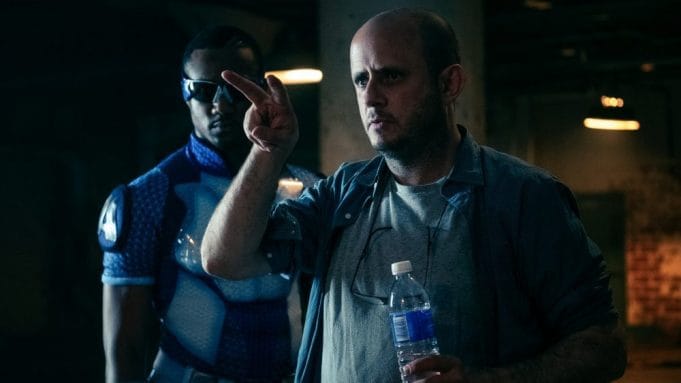
But for as much as I appreciated his humility and friendly candor, what struck me most about Eric was his energy. He exudes joy and passion. There was no weariness in the way he talked about his work, no sense that he was praying to be done, there was only enthusiasm:
Cracking a Season of The Boys
Eric: There’s about seven of us, plus me, in the writers room for The Boys. Everybody gets an episode. We spend about a month at the top of the year talking about season-wide mythology and where we want the characters to go. Then, when we start actually breaking the episode, we usually know, or at least are aiming for, where we have to build to this character moment, or this plot turn, or this step in the mythology.
We have that guide to start with. Then, we spend three-and-a-half weeks to break an episode. We probably spend two of those weeks just talking through character psychology. What’s the character thinking? Where do we want them to grow in this episode? What’s the thing they want most in the world? What’s the thing they’re afraid of most in the world? How do we make the thing they’re most afraid of, stand in the way of the thing that they want? How does that relate to their childhood, whether it’s on camera or not?
How to Land a Series Finale
Eric: Again, structure is so important to me, and I’m a little OCD, and I just hate the idea of moving forward into a horizon that I don’t know, or understand. I want to know where I’m going. In the beginning of the season, we talked about– the way I phrased it was like, “Okay, let’s say all the action is over, and now it’s like the ten pages of wrap up, set to the slow part of 'Layla.' What do we want to see? Who’s alive, who’s dead, the ones who are alive, what are they doing? Where do we want everyone to end up?" We figured out that final montage very early. Then, it was like, "Okay, so how do we get there?"
It’s super intimidating, because you can count on one hand the amount of truly great series finales. The landscape is just littered with corpses of shows that did not stick the landing. And this is the first time I’ve been able to end a show. This is my first stab at it. I’m appropriately terrified of, are we sticking the landing? What do we need to do? Is it happening? Is it emotionally satisfying? Is it unexpected? I lose a lot of sleep over trying to land this plane.
The Joys of Working with Fake Blood
Eric: The gore is a really big part of the comic, and so we wanted to capture that. Seth Rogen, one of our producers, always says, “Shooting lasers from your eyes is not going to make someone shoot back into a door. They’re going to melt in the most horrific way possible.” We wanted to show that in a way that Smallville or Superman never could.
The fun fact about blood is, it’s a corn syrup based, which means it’s sugary. Which means it’s insanely sticky and horrible. It attracts bees. My actors are always pissed at me, because it’s awful. In season 2, we put the guys inside of a whale. The whale is doused with barrels of corn syrup. There were bees everywhere. They were living inside it. It takes the guys days to shower all of this goo off, but it just– it looks good. It flings in the right way. It feels like what it’s supposed to feel like.
Which is funny, because I am so squeamish with the real thing. My wife likes to watch like pimple-popper shows and surgery shows. I cannot watch. I cover my eyes. I squeal. I leave. I literally leave the room. I cannot watch the real stuff. But the pretend stuff, I could watch all day. Early Peter Jackson movies, I find that stuff so fun, because it’s basically just a different version of Muppets. It’s just puppets. It’s puppets, and ingenuity, and magic. It’s so fun. The real stuff is horrible.
See what I mean? His attitude is infectious – you want to help him realize these stories and these characters. If his writers, cast and crew feel the same as I did, I understand why his shows are as special as everyone tells me they are.
Listen to the full episode here or anywhere you get your podcasts.
For our entire catalog of conversations like this, sign up to become a premium member at Scriptnotes.net

